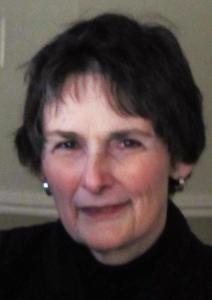Susan Abbott-Jamieson

Voices from the Science Centers
Voices from the Science Centers is an oral history initiative dedicated to documenting the institutional knowledge of fisheries scientists and administrators in the labs of NOAA’s Fisheries Science Centers.
Dr. Susan Abbott-Jamieson is a retired anthropologist with the Social Sciences Branch of NOAA, where she worked as the Senior Social Scientist in the Office of Science and Technology in the National Marine Fisheries Service. She joined the Air Force after high school, and later received a B.A. from Idaho State University and a Master’s and PhD. in Anthropology from the University of North Carolina-Chapel Hill. She conducted ethnographic field research among Kenyan farmers for her PhD., and in Appalachian Kentucky coal mining towns during her career in academia at the University of Kentucky. She began working as the first non-economic social scientist at the National Marine Fisheries Service headquarters Office of Science and Technology in Silver Spring, Maryland in 2001, and retired in 2011.
Scope and Content Note
The oral history interview with Susan Abbott-Jamieson covers her career as an anthropologist with the Social Sciences Branch of NOAA, focusing on her role as the Senior Social Scientist in the Office of Science and Technology in the National Marine Fisheries Service. The interview provides insights into her academic background, including her field research among Kenyan farmers and in Appalachian Kentucky coal mining towns. Abbott-Jamieson discusses her responsibilities as the first non-economic social scientist at the National Marine Fisheries Service headquarters Office of Science and Technology, highlighting the initial reluctance to accept non-economist social scientists and the ongoing educational efforts to emphasize their necessity. The interview delves into her experiences working in the aftermath of Hurricane Katrina, the Local Fisheries Knowledge Project, and the subsequent development of the Voices from the Fisheries project, which involved collecting oral histories to document the experiences of fishermen and individuals involved in commercial fishing. She discusses her experience working during the aftermath of Hurricane Katrina, which severely damaged many fishing communities along the Gulf Coast. Her department had recently completed a major project that gathered data about fishing communities around the country, baseline data that was useful to have when writing social impact assessments and documenting recovery after Katrina. Her and her colleague’s work became seen as useful in a way that it hadn’t been before. Additionally, the interview touches on the genesis of the Local Fisheries Knowledge Project, the expansion of the project to multiple schools, and the collaborative efforts to develop a web interface and database for housing oral histories. Dr. Abbott-Jamieson started the Local Fisheries Knowledge Project to engage young people and get them involved in fisheries science, as well as a way to do outreach in fishing communities and present a more favorable image of NOAA. She brought the program to Maine high schools and taught students how to interview and document the lives of people working in marine fisheries in their communities. This later became the Voices from the Fisheries project, a collection of oral histories relating to the fisheries accumulated in an accessible online database. Lastly, she discusses the lessons she’s learned and the importance of social science in an agency that truly“manages people, not fish.” Abbott-Jamieson also discusses her involvement in post-retirement workshops and cooperative projects related to oral histories, reflecting on the gratification derived from these endeavors and the overall positive experience of her career with NOAA.
Please Note: The oral histories in this collection are protected by copyright and have been created for educational, research and personal use as described by the Fair Use Doctrine in the U.S. Copyright law. Please reach out Voices@noaa.gov to let us know how these interviews are being used in your research, project, exhibit, etc. The Voices staff can help provide other useful resources related to your inquiry.
The NOAA mission is to understand and predict changes in climate, weather, oceans, and coasts, to share that knowledge and information with others, and to conserve and manage coastal and marine ecosystems and resources. The Voices Oral History Archives offers public access to a wide range of accounts, including historical materials that are products of their particular times, and may contain offensive language or negative stereotypes.
Voices Oral History Archives does not verify the accuracy of materials submitted to us. The opinions expressed in the interviews are those of the interviewee only. The interviews here have been made available to the public only after the interviewer has confirmed that they have obtained consent.
